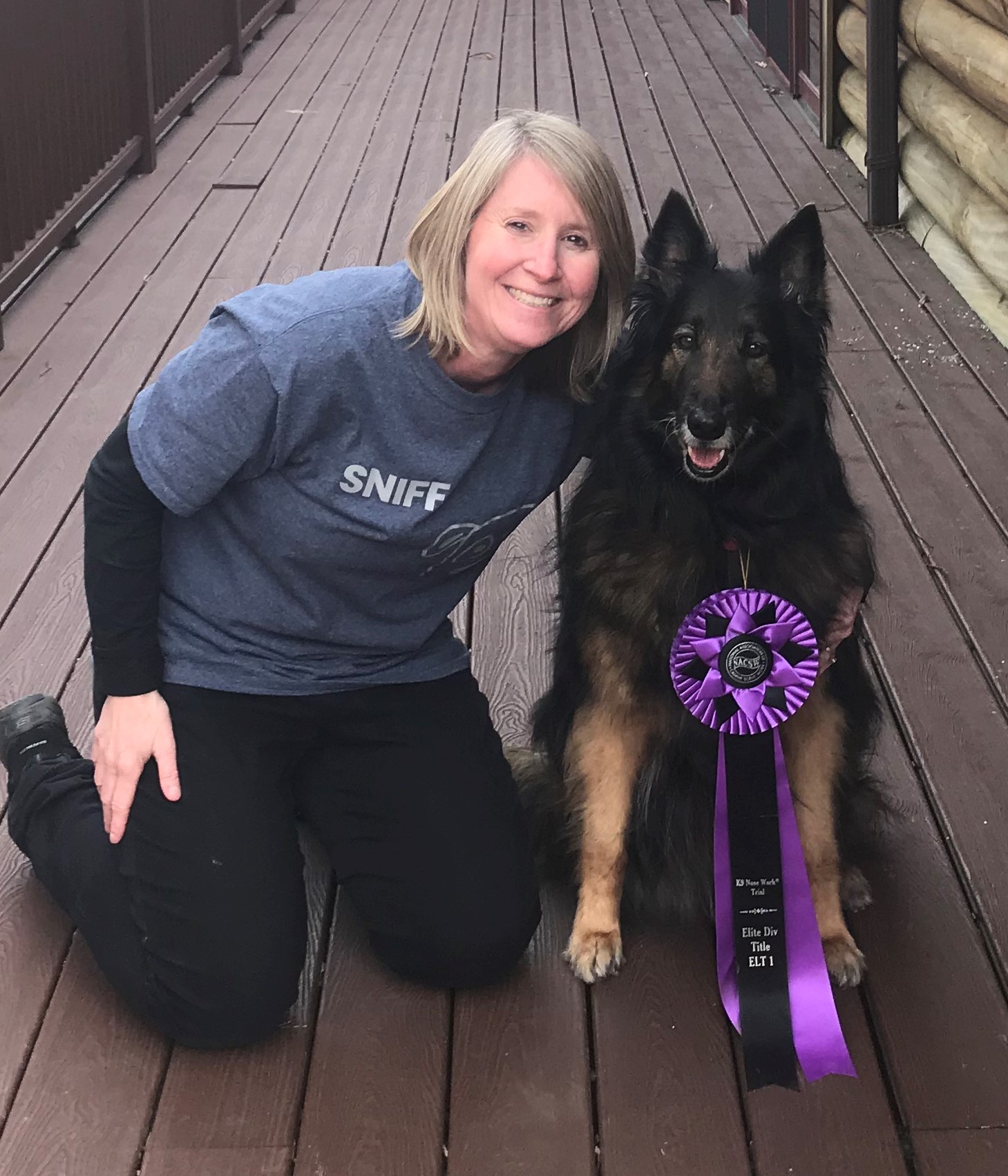Course Details
Empowering Your Dog to Navigate Challenges with Confidence
Rising above environmental challenges can be the hardest part for our dogs. Scentwork dogs face more than the average sport—working inside, outside, on different surfaces, and in infinite setups and surroundings. It’s no surprise that some dogs struggle with focus or sensitivity in search environments. Even dogs who love their food rewards don’t always have the motivation or confidence to push through challenges to find the thing that earns them that reward.
This course is about building resilience and turning sensitivty into strength. We’ll develop critical thinking skills and communication structures away from scentwork, then apply them to search behaviors. Sensitivity isn’t a weakness—it’s an opportunity to foster trust, deepen your bond, and help your dog grow more confident. When we embrace their sensitivities and work with them instead of against them, we set them up for success in nosework and beyond.
A resilient dog is one who can tackle whatever comes their way. By increasing their ability to problem-solve and make good decisions, we strengthen neural pathways that help them choose better solutions when faced with adversity. Through trust-building exercises, we’ll boost confidence, strengthen our partnership, and be better prepared to handle challenges as a team.
This course is targeted for dogs who struggle to stay on task during a nosework/scentwork search due to environmental factors and/or lack of motivation/confidence. The material will help you unlock your dog’s potential and develop strategies for overcoming environmental challenges so they can rise above. Other resoures will be provided for dogs who might require an indepth behavior modification program.
Teaching Approach:
Each week we will address specific environmental challenge by rolling out non-NW exercises to strengthen skills outside of the context of "searching". Each topic will have a specific application to a search skill and wil be followed by some nosework exercises. Each lecture will have written objectives and written instructions for each step followed by multiple video examples. Care is taken to keep lectures short and concise, showing appropriate video examples to demonstrate the written material. Lectures are designed to help students understand the purpose of the exercise and how it might vary by dog. Lectures for each week are rolled out the night before each week. A 1 minute unlimited homework video option is available, along with the standard 6 minutes option per week. This class will work best for students who learn by reading text lectures, watching videos and who like having structured lesson plans.
This class will have a Teacher's Assistant (TA) available in the Facebook study group to help the Bronze and Silver students! Directions for joining that Facebook group will be in the classroom after you register.
 Instructor: Julie Symons
Instructor: Julie SymonsJulie Symons (she/her) has been involved in dog sports for over 30 years. Starting with her mix, Dreyfus, in flyball, she went on to train and compete in conformation, agility, obedience, herding and tracking with her first Belgian tervuren, Rival. Rival was the first CH OTCH MACH Belgian...(Click here for full bio and to view Julie's upcoming courses)


